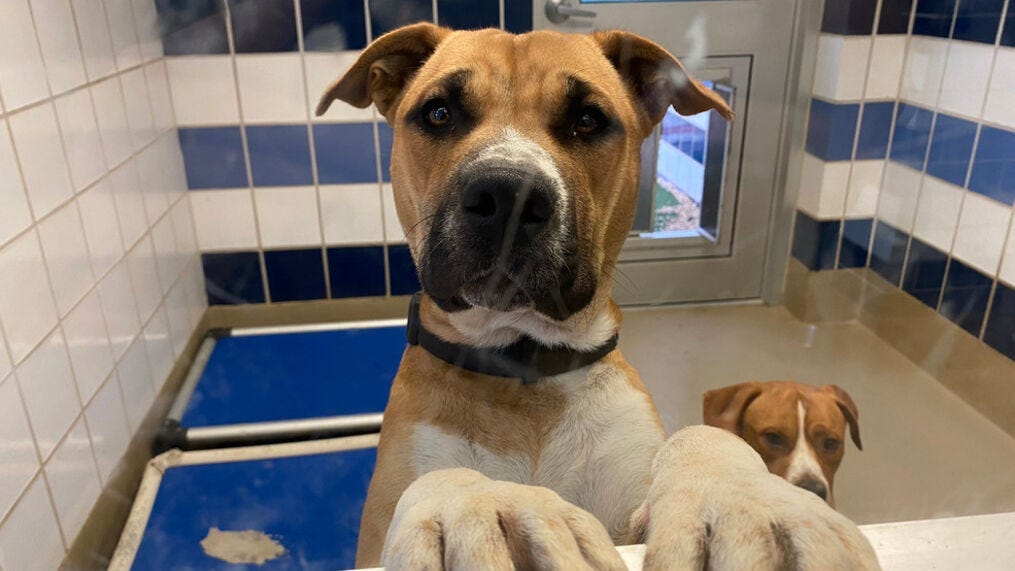A Requiem for a Dream Once Realized in Austin, Texas
A recent audit of the Austin, TX, city shelter found that despite lower intakes, killing has increased, adoptions have declined, volunteers are being retaliated against, animal care has become substandard, and staff-management and rescuer-management relationships have soured. The auditor has called on the City Council to reassess its commitment to No Kill, arguing that a 95% mandated placement rate is inconsistent with humane care. That conclusion is wrong.
The fault for Austin’s decline rests with incompetent management at the city shelter and Austin Pets Alive turning its back on the animals there. Sadly, some individuals who helped spearhead the Austin No Kill initiative and were responsible for years of unprecedented success have shifted their allegiance away from the animals and towards the wealthy, powerful interests that legitimize killing, such as Austin Pets Alive and Best Friends. As such, the passion and commitment to animal welfare, responsible for so much good for Austin’s neediest and most vulnerable animals, has given way to defeat.
As it did before, during, and after the fight for a No Kill Austin and through these last few years of its tragic demise, The No Kill Advocacy Center, my organization, will continue to speak for the animals of that city. We will not forget how it was that No Kill came to be in Austin, what was to credit for its success, how it once inspired animal lovers nationwide, and how the will to sustain it was undermined — bit by bit, capitulation after capitulation — then extinguished, by the forces of corruption, until what was once a source of inspiration is now a cautionary tale.
On behalf of The No Kill Advocacy Center, my letter to the City Council asking them to reject the auditor’s recommendation is below:
Dear Mayor and Members of the City Council,
On behalf of The No Kill Advocacy Center’s Austin, TX, members and supporters, and as someone who was an integral part of the process that led to the passage of the 2009 No Kill Plan and received a proclamation commemorating August 3, 2014, as “Nathan Winograd Day” in the City of Austin for that work, I thank you for allowing me to share our views and concerns.
Specifically, we take issue with the primary conclusion of the recent Austin Animal Center (AAC) audit that there is an inherent conflict between the City’s mandated 95% placement rate on the one hand and, on the other, AAC being open admission and providing humane care. Fault for AAC’s inhumane care, increased killing, and poor relations with staff and community partners is the result of management incompetence, as the Animal Advisory Commission concluded when it expressed a lack of confidence “that Austin’s Chief Animal Services Officer has or will demonstrate the ability to achieve and sustain the Council mandated goals of Austin’s No-Kill Policy…”
On July 25, 2022, we wrote to express our concern that hiring a traditional sheltering consultant, as the City subsequently did, would lead to a predetermined finding “that the 2009 No Kill plan is unreasonable” and a call for “tempering expectations.” (That letter is enclosed for your easy reference.) There is no basis for this conclusion based on the failure of current management to do the job humanely. As we explained over one year ago, “prior to current leadership, placement rates of 98% were standard without turning animals away” despite significantly higher intakes. Blaming the shelter’s currently troubled performance on unreasonable expectations as mandated in the 2009 No Kill Plan obscures that Austin’s increasingly poor performance results from a willful abandonment of former protocols by current management.
Indeed, the audit found that despite lower intakes, killing has increased, adoption efforts have plummeted, volunteers are being retaliated against, animal care has become substandard, and staff-management and volunteer/rescuer-management relationships have soured. Despite this, the auditor noted “that he did not see management directly supervise or check in on staff” and concluded that management “has not assigned anybody the responsibility of rebuilding these relationships or addressing common concerns.”
We also cautioned over one year ago that allowing Austin Pets Alive (APA) to evade its obligations as a condition for using the centrally-located, high-traffic Town Lake Animal Center (TLAC) would be a mistake. When it initially offered the site to APA, the City Council mandated that Austin Pets Alive use it to save at-risk animals at AAC. Instead, APA increasingly used that facility to bring out-of-county animals to compete for homes with Austin animals, which works at cross-purposes to the City’s No Kill mandates. Notwithstanding our concerns,
[T]he City Council amended the City’s agreement with APA and lowered the number of animals it was required to take each year from a minimum of 3,000 animals to 12% of AAC’s previous year’s intake. Under the amended agreement, for 2022 and 2023, APA is expected to take less than half of the number of animals it would have under the previous agreement.
Despite this concession, the auditor found that “APA did not meet its new, lower goal.”
In short, the auditor’s conclusion that the 2009 No Kill Plan is to blame is a non-sequitur. The mandated 95% placement rate should not be changed. Instead, the City should replace current leadership, require that AAC recommit to the 2009 No Kill Plan, and insist on a full partner as a condition for APA’s continued TLAC tenancy.
Very truly yours,
Nathan J. Winograd



Thanks again for championing this cause.
Heartbreaking for the animals of Austin, not to mention the abused and misused volunteers and rescue groups who are trying to help them. Thank you for standing up to the criminals who are posing as shelter management🤬